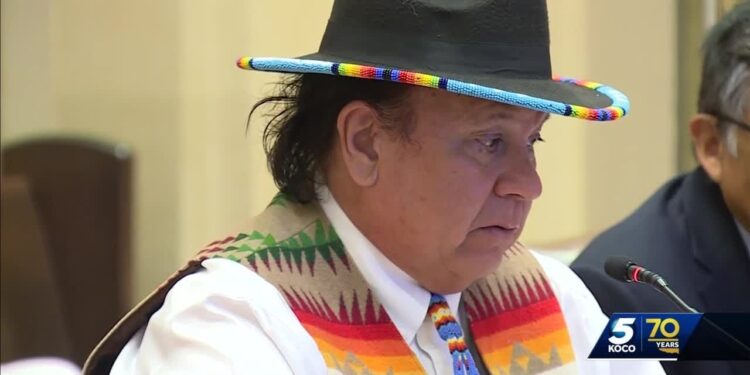Related posts
Tribal leaders from several smaller nations gathered at the Oklahoma state Capitol for a meeting that delved into the history and significance of their enduring agreements with both the United States and the state of Oklahoma. The meeting aimed to highlight the ongoing relevance of these agreements and the need for their continued respect and adherence.
Wilson Pipestem, a member of the Otoe Missouria Tribe, expressed a common sentiment among tribal leaders, noting that Oklahoma and some of its leaders are still struggling to understand the relevance of these agreements. Pipestem emphasized the importance of honoring these compacts, which remain legally binding, and called for improved communication and understanding between the state and tribal governments.
During their visit to lawmakers, tribal leaders emphasized the permanence of their presence and stressed the necessity for constructive dialogue between tribes and the state to address their respective interests. Pipestem, who also practices law, acknowledged that while there is generally agreement between state legislators and tribes on issues related to compacts and jurisdiction, disagreements persist between the tribes and Governor Kevin Stitt.
Pipestem lamented the lack of meaningful conversation with Governor Stitt, characterizing their interactions as adversarial, particularly in the media. However, he highlighted a more positive relationship with legislators and expressed hope that positive meetings at the state Capitol could lead to improved relations with the governor.
Larenda Morgan, representing the Cheyenne and Arapaho tribes, echoed the sentiment of fostering a better relationship with Governor Stitt, suggesting that positive engagement could help bridge understanding and lead to a normalization of relations. She emphasized the importance of mutual friends and common ground in facilitating this process.
Despite these efforts, Governor Stitt maintains his stance on the issue of state versus tribal jurisdiction, citing the McGirt Supreme Court ruling as a significant obstacle to effective law enforcement by local and state police. The governor’s office reiterated his commitment to fairness for all Oklahomans, regardless of race or heritage, and stated that his door remains open to tribal leaders interested in negotiating a compact.
Overall, the meeting underscored the complex relationship between tribes and the state of Oklahoma, highlighting the ongoing efforts to foster understanding, respect, and cooperation between the two entities.








